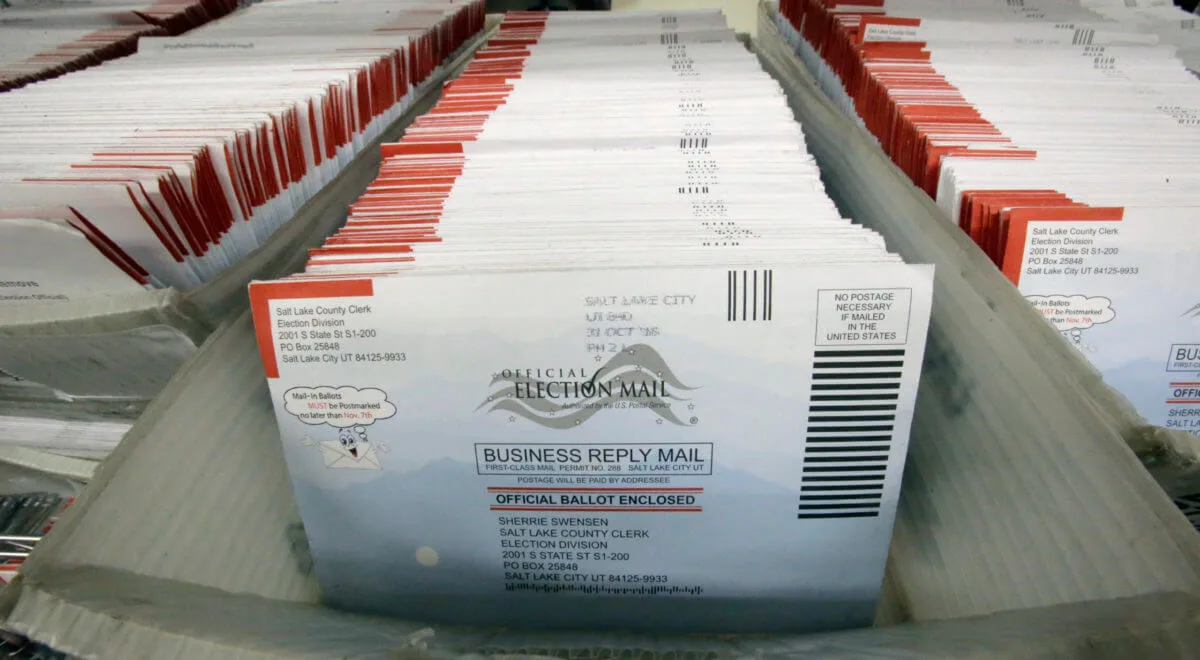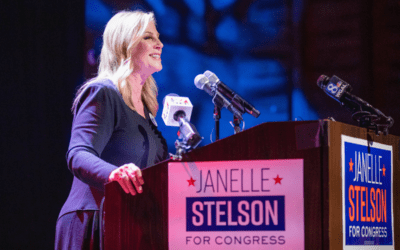
In this Nov. 1, 2016, file photo, mail-in ballots for the 2016 General Election are shown at the elections ballot center at the Salt Lake County Government Center, in Salt Lake City. (AP Photo/Rick Bowmer, File)
The time is now for the federal government and the states to secure adequate funds to prepare for a November election that doesn’t require the majority of voters to congregate at the polls on Election Day.
Drs. Anthony Fauci and Robert Redfield have made it clear COVID-19 will come back in the fall. With the presidential election in November, some have prudently called to fund vote by mail initiatives so everyone can vote without risking their lives.
But many Republicans fear vote by mail, with Republican National Committee Chairwoman Ronna McDaniel writing that “The Democrats’ all-mail ballots proposal is a ruse to legalize ballot harvesting nationwide” and increases the “opportunity for fraud.” But Republicans like McDaniel are needlessly politicizing what should be a non-partisan issue.
For starters, there is little empirical evidence to support these claims. In fact, the opposite is true. Older voters, and especially older rural voters, are far more likely to fill out and return mail-in ballots, which will generally benefit Republican candidates. The data bear this out: Colorado’s vote-by-mail system raised voter turnout more among Republicans than among Democrats. Far from opposing vote-by-mail systems, Republicans should embrace them as a way to protect elections and safeguard public health—all while giving themselves a likely electoral advantage.
RELATED: Trump’s Attacks on Vote-by-Mail Could Suppress the GOP’s Own Vote
As for claims of election fraud, Trump Republicans are historically happy, if not eager, to inflate (read: make up) allegations that simply aren’t true. Back to Colorado: Since its introduction in 2014, the vote-by-mail system hasn’t resulted in a single case of voter fraud. Not one.
The time is now for the federal government and the states to secure adequate funds to prepare for a November election that doesn’t require the majority of voters to congregate at the polls on Election Day.
Republicans like McDaniel are loath to acknowledge the Trump administration’s failure to prepare for and manage this pandemic properly. And while that is understandable politically, carrying the policy of denial forward threatens the most sacred American institution of all—our elections. Several solidly Republican states such as Nebraska and West Virginia are already making such preparations.
As the nation’s governors—including Republicans Mike DeWine of Ohio and Larry Hogan of Maryland—have demonstrated, good policy is good politics. Governors acting in the best interest of their citizens are also doing well politically. For example, according to one poll, 80 percent of Ohioans approve of DeWine’s early intervention and handling of coronavirus.
RELATED: Americans Trust Their Governors More Than Trump to Lead on Reopening the Economy
Good leaders prepare for the worst, while hoping for the best. And they do what is necessary to address the most urgent threats facing their people. Republicans in the federal government must learn from the nation’s Republican governors. But time is critically short. Practically speaking, states must construct their plans before June 1 if they hope to overcome logistical and financial challenges.
November is coming, and the confidence in the legitimacy of the general election is dangerously imperiled from an all-too-likely resurgence of the COVID-19 virus.
What happens if a second COVID-19 outbreak renews the need for social distancing? If in-person voting is precluded? Or if the majority of poll workers, comprised primarily of susceptible senior citizens, refuse exposure to the public on Election Day, thereby shuttering poll locations throughout the nation?
The primary season has demonstrated the legal confusion, logistical obstacles, and public mistrust a disrupted democratic process produces. The shambolic Wisconsin election is only one example of a pandemic’s unprecedented power to disrupt the democratic process.
RELATED: Wisconsin Has First COVID Cases Linked To Election
Now is the time to prevent the same fate for America’s general election in November. If the COVID-19 pandemic has taught us anything about our elections, it should be that the worst is possible and preparation is crucial.
Congress’ preparations so far haven’t gone far enough, however. In its second COVID-19 stimulus package, Congress allocated $425 million toward election security measures. However, the Brennan Center estimated the cost at $2 billion. And time is running out to spend the money wisely if or when Congress appropriates it. States will need to print ballots and mailers, hire and train poll counters, buy new ballot-counting machines, and test their systems to make sure they’re robust and secure. That’s a lot to do in thousands of jurisdictions between now and November.
Democrats, Republicans, and Independents are all on notice that America’s ability to conduct a fair, orderly democratic election is not guaranteed. It is a privilege that must be jealously guarded, defended, and planned for. Voting by mail must not become another partisan issue.

For Rep. Susan Wild, supporting PA families includes reproductive rights and much more
Rep. Susan Wild wants to be very clear with Pennsylvanians: Donald Trump is committed to taking away women’s reproductive freedom, but he is not...

School districts working with anti-LGBTQ groups can cost your kids’ schools millions
Parents across South Central Pennsylvania are worried about the potential financial impacts working with anti-LGBTQ groups may have on their school...

VIDEO: Trump distances himself from his anti-abortion views
Donald Trump appeared on WGAL on Tuesday and continued to distance himself from his anti-abortion views claiming that reproductive rights are now a...

VIDEO: Community pushback gets school board to rescind decision on denying gay actor’s visit
Cumberland Valley School Board offered a public apology and voted to reinstate Maulik Pancholy as a guest speaker a week after the board voted to...

VIDEO: Project 2025 brings nuclear armageddon back into vogue
Project 2025 is a titanic document, with plans ranging from cutting half of all government employees to targeting reproductive rights on a scale...




